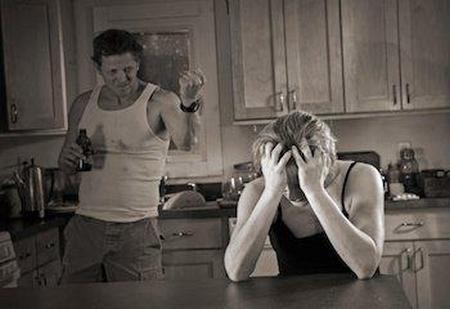Drinking and Your Marriage
With the holidays just around the corner, people’s thoughts are turning to celebration. No matter what religious or secular holidays are observed, there will likely be a feast, with the consumption of wine, beer, and other spirits as an inevitable part of the events. And, while most adults can enjoy drinking in moderation, some will have a hard time knowing their limits, crossing the line into an embarrassing form of inebriation.
But what does alcohol mean for marriage? If one spouse binges, is this an early indicator of divorce? Drinking is also responsible for many instances of domestic violence, right? As it turns out, the conventional wisdom surrounding alcohol use and abuse largely distorts the truth.
 Drinking and Divorce? It Depends on Whether You Share
Drinking and Divorce? It Depends on Whether You Share
Many people view alcohol as a social ill that rips families apart. One of the main reasons given for the temperance movement that led up to Prohibition was protection of the family. It seems, however, that alcohol consumption alone is not as destructive on marriages as previously thought.
A recent study from the University at Buffalo reports that couples that drink the same amount are much more likely to stay together than couples that drink disproportionately. The massive study encompassed the first nine years of 639 couples’ marriages. It concluded that couples who drank roughly the same amount (whether drinking moderately, heavily, or not at all) had an approximately 30 percent chance of divorce, compared to a 50 percent instance for couples in which one consistently drank more than the other.
Drinking and Domestic Violence? The Drinking Has Little to Do With It
Another common trope about drinking is that it promotes violence in the home. The Women’s Christian Temperance Union used domestic violence as a tent pole issue when campaigning for Prohibition in the early part of the 20th Century. The truth of the matter is more complex, and alcohol consumption is likely incidental to the bigger underlying problem: the abuser.
Many men who engage in abusive behavior do not drink before acting. Others do, but only after consuming a small number of drinks, not enough to blame the alcohol for the violence. While alcohol can distort someone’s thoughts in a way that causes them to misinterpret social cues, this can only be peripherally blamed on the alcohol. Alcohol may exacerbate the confusion that caused the anger, but it did not cause the violence; the abuser did.
What to Do if Drinking is Affecting Your Marriage
If you are being abused, whether it is after your abuser is drinking or not, help is available. There are women’s shelters and counseling services that focus specifically on helping the victims of domestic violence.
If you are contemplating divorce, an experienced DuPage County family attorney can help you get the outcome you want. If you want custody of your children, the ability to stay in your home, or a protective order placed to help protect you from violence, an experienced family lawyer can fight for you. Contact Mevorah & Giglio Law Offices today.
 English,
English,
 Spanish,
Spanish,
 Polish,
Polish,
 Urdu
Urdu













 Make a Payment
Make a Payment



